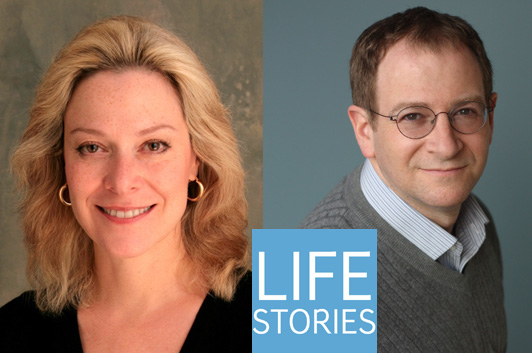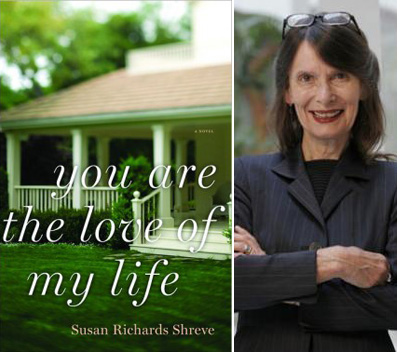Life Stories #16: Alex Witchel & Will Schwalbe

photos: Fred R. Conrad (Witchel), Michael Lionstar (Schwalbe)
In this episode of Life Stories, a series of podcast interviews with memoir writers about their lives and the art of writing memoir, I met with two writers who discuss their adult elationships with their mothers during health crises. In All Gone, New York Times journalist Alex Witchel talks about coping with her mother’s diagnosis of dementia—especially helping her through the medical appointments—as well as the effort to hold on to the memories of the bond that they once shared, in which the family recipes play a significant role. Will Schwalbe, the former editor in chief at Hyperion Books (and founder of Cookstr.com), was also by his mother’s side as she underwent treatment for pancreatic cancer; The End of Your Life Book Club recounts the conversations they had about the books they were reading, and how those conversations strengthened the emotional bond between them in the months before his mother’s death.
In this conversation, we touch upon a variety of subjects, from the differences in coping with a loved one’s death from cancer and coping with a decline brought on by dementia to the ways in which a great editor can help a memoirist draw out the most essential elements of his or her story. Although Alex and Will have had two very different sets of experiences, the core emotional truths in each of their stories speak to a situation that many of us face as we (and our parents) grow older, and the ways in which they’ve chosen to share those stories with us are inspiring.
Listen to Life Stories #16: Alex Witchel & Will Schwalbe (MP3 file); or download the file by right-clicking (Mac users, option-click).
24 October 2012 | life stories |
Susan Richards Shreve & The ’70s from Here

photo: David Carmack
The material that got sent along with my copy of Susan Richards Shreve’s new novel, You Are the Love of My Life, mentions that the story is “inspired by Shreve’s personal connection” to its setting in early 1970s Washington, D.C. So when it came time to suggest possible guest essay topics, expanding on that personal connection seemed like a good choice: What was it about that time and place that Shreve drew upon in telling the story of a children’s book author who brings her son and daughter back to her family home in D.C., then finds herself caught in an emotional tug-of-war with a neighbor that threatens to reveal the hidden shames of her past? Shreve was happy to explain.
Oh, by the way: When she mentions having started up an alternative school with her husband? Folks who’ve been reading Beatrice for a long time might recall that her son, Porter Shreve, wrote about his side of that story in another guest essay…
On January 28, 1973, the Paris peace accords were signed, ending the war in Vietnam. My husband and I had turned thirty and were living in north Philadelphia—three young children in a big, old house shared with a facsimile of a commune. That night my husband took our five-year-old son to the candlelight gathering in honor of the end of the war. It was a moment of victory that over the years has faded to defeat but at the time for young men like my husband who had been waiting to be dispatched to southeast Asia, the spirit on the streets of Philadelphia was joyous. And the spirit in our house was one of adventure bordering on chaos.
The commune had been travelling in a VW van from Colorado to Vermont by way of Philadelphia and was delivered to our doorstep whole cloth by my younger brother. They never made it to Vermont and so we lived in relative harmony with a large vegetable garden in the yard, pot luck parties every weekend, daily hikes along the river, a general sense of satisfaction. Or malaise.
21 October 2012 | guest authors |

 Our Endless and Proper Work is my new book with Belt Publishing about starting (and sticking to) a productive writing practice.
Our Endless and Proper Work is my new book with Belt Publishing about starting (and sticking to) a productive writing practice. 
